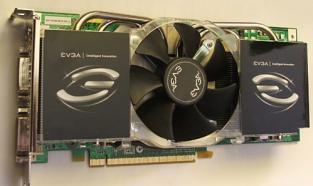OOPS! You forgot to upload swfobject.js ! You must upload this file for your form to work.
Advanced process technology is an important advantage of Intel in the mobile segment
![]()
|
xtreview is your : Video card - cpu - memory - Hard drive - power supply unit source |
|
|||
|
|
||||
 Recommended : Free unlimited image hosting with image editor
Recommended : Free unlimited image hosting with image editor
|
POSTER: computer news || ADVANCED PROCESS TECHNOLOGY IS AN IMPORTANT ADVANTAGE OF INTEL IN THE MOBILE SEGMENT |
DATE:2013-10-16 |
|
|
For a long time, Intel had to counter the ARM partners in the segment of processors for mobile devices, in addition to advanced lithographic processes that allow it to put more transistors per unit area of the chip. In theory, development of new production methods allowed Intel to reduce power consumption of processors simultaneously or lift speed, depending on the priorities, but in practice, smartphones and tablets on processors with ARM architecture still proved to be more autonomous in terms of performance/watt . On a quarterly report conference Merrill Lynch could not resist the tricky question about confidence in their ability to oppose Intel , and as one of them mentioned the Apple company with their new 64-bit CPU, A7, manufactured by mature enough 28-nm technology. Brian Krzhanich said that Intel have long supported 64-bit operating system. Comparing Apple A7 with manufactured on 22 nm technology processor Bay Trail , Intel chairman promised that transistor density will be much higher in the latter. Moreover, the transition to 14-nanometer process technology will double the transistor density relative to 22-nm process technology. Accordingly, the so-called Moore's Law will continue to work. Intel Clients, according to Krzhanicha, carefully monitored the progress of Atom processors. They see that the company has not only mastered the advanced lithographic technologies, but also offers the performance of the graphics system, a 64-bit architecture, as well as trying to integrate additional functional blocks . | ||
|
|
||
|
xtreview is your : Video card - cpu - memory - Hard drive - power supply unit source |
|
|
|
|
||
|
Xtreview Support  N-Post:xxxx Xtreview Support        |
ADVANCED PROCESS TECHNOLOGY IS AN IMPORTANT ADVANTAGE OF INTEL IN THE MOBILE SEGMENT |
| Please Feel Free to write any Comment; Thanks  |
The motherboard manufacturer confirms the characteristics of the processors Coffee Lake (2017-09-08)
AMD itself would like to believe that mobile processors Ryzen have already been released (2017-09-08)
The older Skylake processors with a free multiplier are removed from production (2017-09-07)
AMD Bristol Ridge processors are also available in American retail (2017-09-07)
The six-core processor Intel Coffee Lake lit up at a Chinese auction (2017-09-06)
AMD processors with Zen architecture of the second generation will raise frequencies and specific performance (2017-09-05)
The six-core processor Intel Coffee Lake has conquered the frequency of 5.0 GHz (2017-09-05)
On the Germans, AMD Ryzen Threadripper processors produced a predominantly positive impression (2017-09-04)
Retail boxed versions of economical processors Bristol Ridge (2017-09-03)
dual-processor video card GeForce GTX 560 Ti x2 (2017-08-27)
More recent AMD Ryzen processors do not annoy Linux users with problems (2017-08-26)
Updated chipset drivers for AMD Ryzen and Ryzen Threadripper processors (2017-08-26)
Intel stops supplying Xeon Phi 7200 Knights Landing coprocessors (2017-08-26)
Expansion of 10-nm Intel processors range will be on 2018 (2017-08-24)
AMD again fantasized about the monolithic crystal processors EPYC (2017-08-24)
Japanese shops rushed to reduce prices for AMD processors Ryzen Threadripper (2017-08-24)
AMD continues to demonstrate the capabilities of its processors using NVIDIA graphics cards (2017-08-23)
Six-core processors Intel Coffee Lake should be released in October (2017-08-22)
Analysts believe that the new processors from Intel and AMD will revive the PC market in the second half of the year (2017-08-22)
Atom C3000 processors registered in the Intel Price List (2017-08-19)
![]()
To figure out your best laptops .Welcome to XTreview.com. Here u can find a complete computer hardware guide and laptop rating .More than 500 reviews of modern PC to understand the basic architecture


7600gt review
7600gt is the middle card range.
We already benchmarked this video card and found that ...

 geforce 8800gtx and 8800gts
geforce 8800gtx and 8800gts  Xtreview software download Section
Xtreview software download Section  AMD TURION 64 X2 REVIEW
AMD TURION 64 X2 REVIEW  INTEL PENTIUM D 920 , INTEL PENTIUM D 930
INTEL PENTIUM D 920 , INTEL PENTIUM D 930  6800XT REVIEW
6800XT REVIEW  computer hardware REVIEW
computer hardware REVIEW  INTEL CONROE CORE DUO 2 REVIEW VS AMD AM2
INTEL CONROE CORE DUO 2 REVIEW VS AMD AM2  INTEL PENTIUM D 805 INTEL D805
INTEL PENTIUM D 805 INTEL D805  Free desktop wallpaper
Free desktop wallpaper  online fighting game
online fighting game  Xtreview price comparison center
Xtreview price comparison center Lastest 15 Reviews


Rss Feeds
Last News
- The new version of GPU-Z finally kills the belief in the miracle of Vega transformation
- The motherboard manufacturer confirms the characteristics of the processors Coffee Lake
- We are looking for copper coolers on NVIDIA Volta computing accelerators
- Unofficially about Intels plans to release 300-series chipset
- The Japanese representation of AMD offered monetary compensation to the first buyers of Ryzen Threadripper
- This year will not be released more than 45 million motherboards
- TSMC denies the presentation of charges from the antimonopoly authorities
- Radeon RX Vega 64 at frequencies 1802-1000 MHz updated the record GPUPI 1B
- AMD itself would like to believe that mobile processors Ryzen have already been released
- AMD Vega 20 will find application in accelerating computations
- Pre-orders for new iPhone start next week
- Radeon RX Vega 57, 58 and 59: the wonders of transformation
- ASML starts commercial delivery of EUV-scanners
- The older Skylake processors with a free multiplier are removed from production
- Meizu will release Android-smartphone based on Helio P40
- AMD Bristol Ridge processors are also available in American retail
- The fate of Toshiba Memory can be solved to the next environment
- duo GeForce GTX 1080 Ti in GPUPI 1B at frequencies of 2480-10320 MHz
- New Kentsfield overclocking record up to 5204 MHz
- Lenovo released Android-smartphone K8

HALO 3 HALO 3 - Final Fight!

PREY Prey is something you don t often see anymore: a totally unigue shooter experience.

computer news computer parts review Old Forum Downloads New Forum Login Join Articles terms Hardware blog Sitemap Get Freebies


